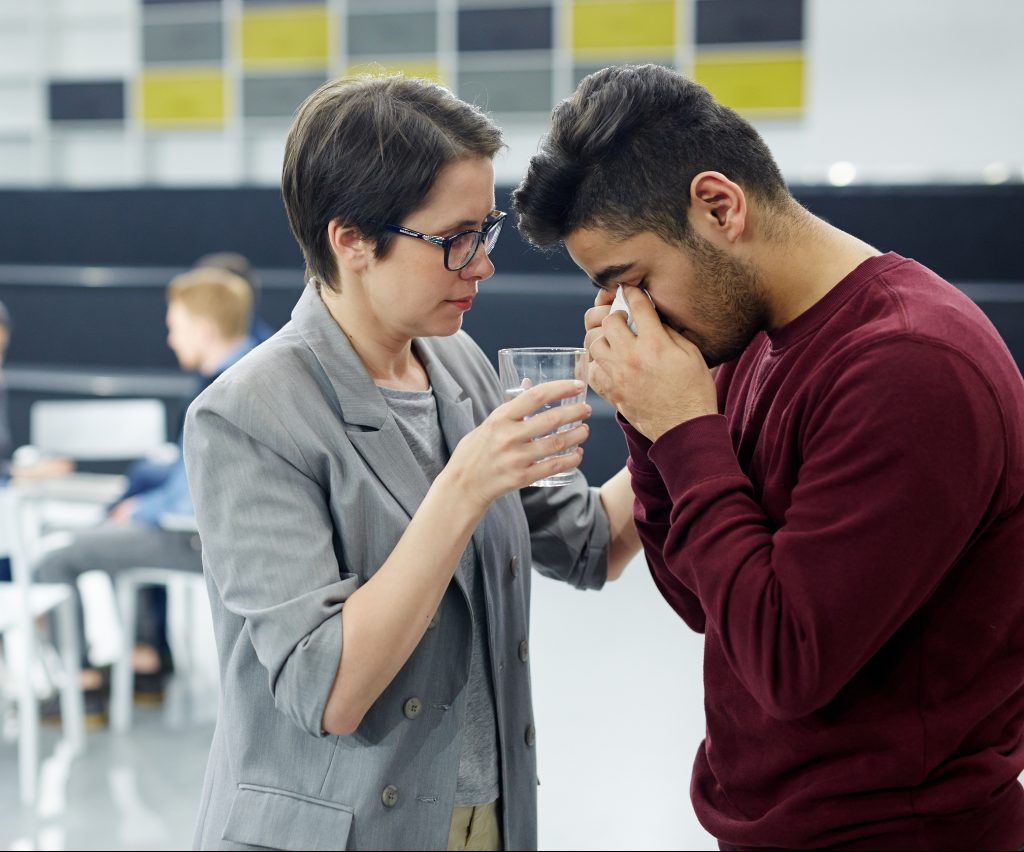
College is a wildly important time in your development as a person. You’re now responsible for your own schedule, you have to ensure you’re getting three meals a day and no one but yourself is keeping you accountable to a healthy routine of sleeping, eating and exercising.
So much responsibility for a young adult, however, can be truly overwhelming, not to mention the addition of the ever-constant pressure of one’s peers. In an environment that usually has less structure than one’s home, college can lead to unhealthy choices as a result of unhealthy routines, peers and an overabundance of freedom.
Drug use on college campuses
Unfortunately, it’s no secret that with this newfound freedom comes the potential for drug abuse. Colleges are not immune to the presence of drug use, especially with off-campus parties and other events students may seek out.
Statistical data on undergraduate drug use from 2022 reports that an estimated:
- 42% of students reported using cannabis in their life
- 33.1% reported using tobacco or nicotine
- And 3.1% reported misusing prescription stimulants
Not every student who goes to college will experiment with drug use, but it’s important for parents to be aware of the reality. This way, if your son or daughter does show symptoms of abuse, you are better equipped to help.
Common drugs used in college
There are a number of commonly abused substances that the American College Health Association (ACHA) discovered upon surveying a group of students.
These include:
- Alcohol, at 71 percent
- Cannabis at 41.9 percent
- Tobacco/other nicotine products at 33.1 percent
- Hallucinogens at 8.9 percent
- Prescription stimulants at 6.9 percent
While it might be easy to assume that drug use in college is related only to the party culture, prescription stimulant misuse is another common way in which drugs are misused. Adderall — a prescription medication for the treatment of ADHD — has been misused by a number of students in the hopes of improving their academic performance, attention span and focus.
Recognizing signs of drug use in college students
As a parent, if you are concerned about substance abuse in the life of your child, it is important to know the signs of drug use. Over time, as abuse continues, there will be changes in your child, including their appearance, their preferences and possibly even their personality. While all of these changes are reversible with the help of a psychiatrist, it’s important to know even the most subtle signs so you can get them to help early on.
Behavioral changes
Obviously, your child will change when they go to college — maturing is all a part of the experience. However, negative changes or regression in behavior may be more of a warning flag.
Behavioral changes to look out for include:
- Withdrawal or isolation
- Anger or irritability, especially from a formerly peaceful child
- Disinterest in previously enjoyed activities
- Dishonesty or lying
- Increased, unnecessary risk-taking
These signs alone may not indicate drug abuse, but in conjunction with other changes may be cause for concern.
Physical changes
Drug use impacts both the body and the mind, so you may notice physical changes, including:
- Dramatic weight loss or gain
- Changes in skin or hair, including dullness or rashes on the skin, or increased hair loss
- Symptoms of GI upset
- Frequent coughing
While we all go through physical changes during our lifetime, knowing which of these changes are possibly related to drug use can help parents identify whether or not their child’s health is truly at risk.
Other lifestyle changes
Additionally, you may notice other changes in your child’s life possibly connected to drug misuse.
- Increased spending – Drug use is expensive and the cost adds up quickly. If your college student seems to be spending lots of money without any proof of purchase (new clothes, books, food, etc.), they may be using the money to purchase substances
- A decline in academic performance – When a substance use disorder is present, other responsibilities often suffer; if your child’s grades have suddenly declined, or their attendance is unexplainably poor, there may be an underlying issue
- Engaging with people who use substances – Peers can play a significant role in the development of a substance use disorder and hanging out with people who engage in these behaviors may lead your child to experiment
- Taking unnecessary risks – Substance abuse causes poor decision-making due to the way it impacts brain chemistry; if your child has gotten in trouble for driving under the influence, stealing or taking any other unnecessary/uncharacteristic risks, it may be in conjunction with substance use
It’s important to not jump to conclusions if you are noticing lifestyle changes in your child; instead, consider having an open conversation with them about your concerns and listen to what they have to say.
Finding support for substance use in college
Whether you are a college student struggling with substance abuse or are a parent with a child battling it, help is available for each of you. Contact High Focus Centers today to learn what treatment is available and how you or your child can find freedom through recovery. We have several locations throughout the Mid-Atlantic and Southeast.
Recent Posts
- How Mood Stabilizers Work to Restore Emotional Balance
- Trauma-Informed Approaches in Therapy: Why Understanding Trauma is Essential for Healing
- Using Art as a Voice: Exploring the Therapeutic Benefits of Creativity
- What is Xylazine?
- How Overcoming Roadblocks is Crucial to Recovery – And How Your Treatment Center Can Help




